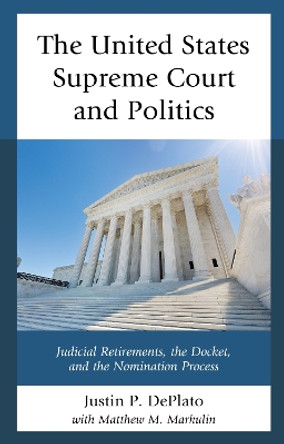In this book, Justin DePlato examines and analyzes the reasons and justifications for, as well as instances of, executive emergency power in political thought and action. The book begins by analyzing the theory of executive emergency power across a wide breadth of philosophical history, from Ancient Greek, Renaissance, through modern American political thought. This analysis indicates that in political philosophy two models exist for determining and using executive emergency power: an unfettered executive prerogative or a constitutional dictatorship. The modern American approach to executive emergency power is an unfettered executive prerogative, whereby the executive determines what emergency power is and how to use it. The book addresses the fundamental question of whether executive power in times of crisis may be unfettered and discretionary or rather does the law define and restrain executive emergency power. The author reviews and analyzes seven U.S. presidencies that handled a domestic crisis-Washington, Jefferson, Madison, Jackson, Lincoln, G. W. Bush, and Obama-to show that presidents become extraordinarily powerful during crises and act unilaterally without oversight. The use of executive emergency power undermines the normal processes of democratic republicanism and harms the rule of law. The author analyzes the U.S. Constitution, formerly classified Department of Justice Memos, primary sourced letters, signing statements, executive orders, presidential decrees, and original founding documents to comprehensively conclude that presidential prerogative determines what emergency powers are and how they are to be executed. This book challenges the claim that presidents determine their emergency power with appropriate congressional oversight or consultation. The analysis of the empirical data indicates that presidents do not consult with Congress prior to determining what their emergency powers are and how the president wants to use them. Justin DePlato joins the highly contentious debate over the use of executive power during crisis and offers a sharp argument against an ever-growing centralized and unchecked federal power. He argues that presidents are becoming increasingly reckless when determining and using power during crisis, often times acting unconstitutional.
About the AuthorJustin P. DePlato is visiting assistant professor of political science and public administration at University of North Florida.
ReviewsThe post-9/11 American presidency has been the focus of much scholarly and popular debate, given the strong exercise of 'emergency' executive power by Presidents George W. Bush and Barack Obama. In The Cavalier Presidency, DePlato takes a closer look at executive emergency power by tracing and examining its use by presidents in several historical eras. DePlato uses these historical eras to highlight a key question in both political thought and action regarding the proper nature of executive emergency power: should such power be merely implied in the constitutional powers of the president or be explicitly defined in law? This leads to other key considerations, such as the proper role of Congress and the overall threat posed to constitutional democracy by emergency executive power. Overall, DePlato's book will be a helpful source for students of American government seeking an introduction to the dilemma of emergency executive power. Summing Up: Recommended. General readers; undergraduate and graduate students. * CHOICE *
The arguments made in this book cover an important area of the presidency that is still considered 'unsettled' territory. The book is very well organized and covers key areas of this discussion. Justin DePlato has a point to make and a provocative position to defend. -- Michael A. Genovese, Loyola Marymount University
Book InformationISBN 9781498536196
Author Justin P. DePlatoFormat Paperback
Page Count 232
Imprint Lexington BooksPublisher Lexington Books
Weight(grams) 358g
Dimensions(mm) 228mm * 151mm * 17mm







